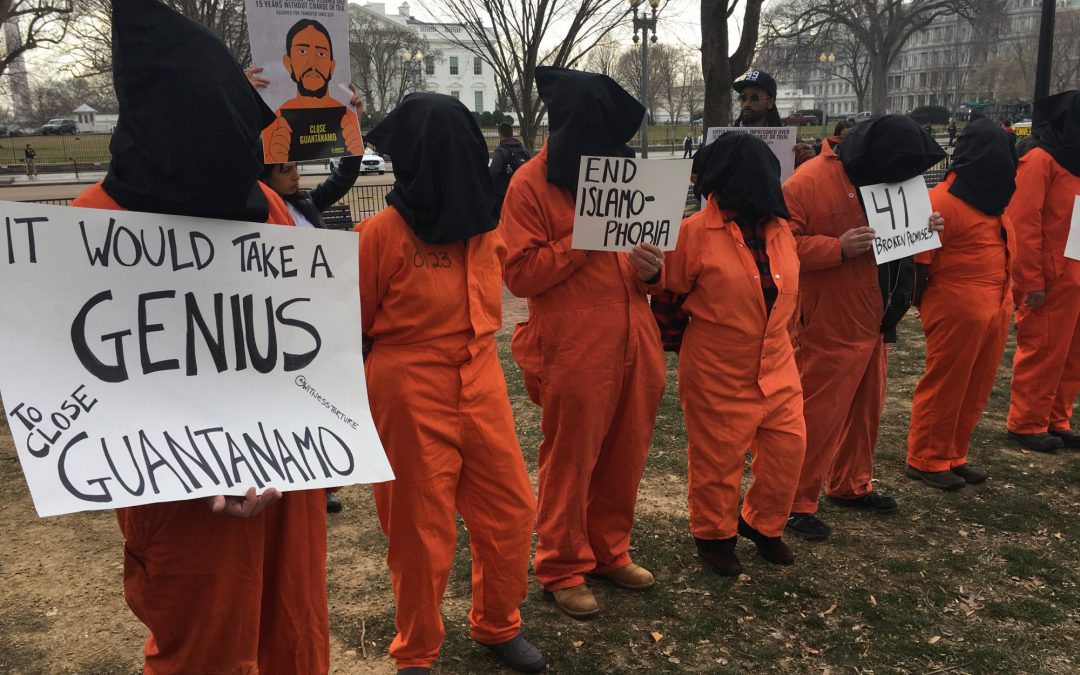WASHINGTON – Eleven of the 41 remaining detainees at Guantanamo Bay should be freed because they have not been charged and their continued detention is illegally punitive, the human rights group Center for Constitutional Rights said Thursday in asking a federal court to free the men.
On the 16th anniversary of the detention center accepting its first detainees, the center asked the U.S. District Court for the District of Columbia to issue writes of habeas corpus for the 11 prisoners, none of whom have been charged with a crime or received a court hearing.
Two of the prisoners – Tofiq Nasser Awad Al Bihan and Abdu Latif Nasser – have been cleared for transfer to another country. The other nine – Sharqawi Al Hajj, Sanad Al Kazimi, Suhail Sharabi, Said Nashir, Abdul Rabbani, Ahmed Rabbani, Abdul Razak, Abdul Malik and Abu Zubaydah – were marked for continued detainment under the laws of war.
The Trump administration supports keeping the prison open and increasing the number of inmates, while the Obama administration had drastically reduced the number of detainees held at Guantanamo. Guantánamo has held a total of 780 detainees.
The current administration’s position represents “arbitrary and unlawfully punitive policy,” Center for Constitutional Rights Legal Director Baher Azmy said at a news conference.
Speculation has arisen that the administration might use the Senate’s 2001 vote to authorize military force in Iraq and Afghanistan – sending the U.S. to war against terrorism – to justify continued detention of the suspects as enemy combatants. The authorization was used in past detainee court cases for this purpose. But Azmy said this justification is faulty because it allows indefinite internment.
Last year, 11 Republican senators urged President Donald Trump to actively pursue his Guantánamo growth policy. Led by Sen. Jerry Moran of Kansas, they cited an Office of National Intelligence report indicating that some of the detainees who had been transferred out of Guantánamo had resumed their support for terrorist activities.
This week at the Guantanamo facility, pre-trialing hearings have resumed for five of the 17 high-risk detainees, including Khalid Sheik Mohammed, allegedly one of the architects of the 9/11 attacks.
Unlike the 11 petitioners, Mohammed has been charged with crimes warranting the death penalty. His role in the 9/11 attacks means that it is near impossible for him to ever be freed. But he, along with the petitioners, was subject to enhanced interrogation techniques, including waterboarding. Those techniques were halted in 2008, but Trump has expressed support for reintroducing them.
“[Guantánamo] was designed to be less than transparent when it comes to the treatment of human beings,” said Mark Fallon, former special agent with the Naval Criminal Investigative Service and former member of the Senior Executive Service in the Department of Homeland Security.
“I don’t think we can [bring terrorists to justice] until we bring torturers to justice,” Fallon said.
Following the morning’s press conference, five protesters were arrested in Lafayette Square across from the White House for crossing police lines during a rally urging the president to close Guantanamo.

